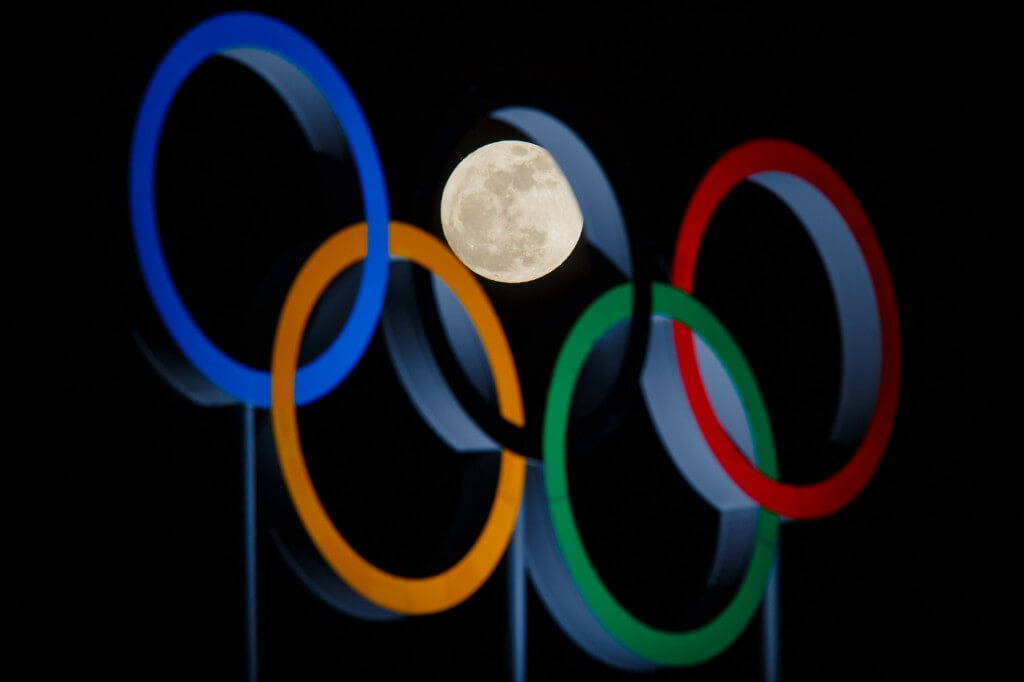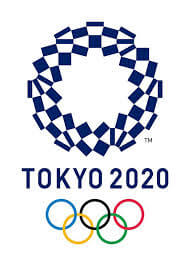A Season For Citius-Altius-Fortius Spirit From Olympic Bosses Not “Games On As Planned Or I’m Taking My Ball Home”

Commentary: A Season In Need Of Citius-Altius-Fortius Spirit as Tokyo 2020 Decisions Loom
Hobson’s Choice, a rock and a hard place, the devil and the deep blue sea.
The International Olympic Committee (IOC) will hold an Executive Board meeting today and extend the sitting to sports federations around the world to consider the impact of coronavirus COVID-19 on the Tokyo 2020 Olympic Games against a backdrop of desertification in the sporting landscape and seascape.
Olympic Trials have become tribulations, championships, series and cups cancelled, postponed, the goals and plans of athletes, their coaches, support teams and the vast network of those linked in the complex web that is the business of sport, parents, sponsors, federations, associations, media and more. Sport is closed. There is a reason, a very strong one.
Exit the bubble and all of those mentioned in the previous paragraph are linked to the wider world feeling the earthquake of containment, financial challenges that extend to almost certain bankruptcy in the absence of Government intervention and support. Many are likely to lose their jobs, their family incomes, their status and place in life.
Count coaches in that mix, many hired on part-time and contract basis but now sent home with no work and not income and few alternatives to turn to, the advice of the World Health Organization and the many nations lining their ducks up behind it summed up by: limited or no contact, containment the key.
The stuff of normal life is being shut down in waves across the world. The watchwords of the season are social-distancing, self-isolation and keeping grandma and grandpa alive, including the last of a generation who knew World War and understand hardship, fear, resolve, rationing and coming through with a sense of loss for those who did not make it that lasts a lifetime, never goes away.
There is much gnashing of teeth of “poor swimmers” and other athletes, Olympians and 10-year-old age groupers alike. Understandable sentiments but much of that needs to be supped with a heavy dose of perspective, pragmatism and safety first mindset.
There is now a need for a war-time resilience as months, not weeks, of challenges lie ahead.
In the world of swimming, some elite swimmers swim on as normal, others are being catered for in contained training-camp facilities, the bulk of the community far and wide is being left to scramble for pools, access to coaching and many have simply seen their season brought to a crashing end: the doors of colleges and swim clubs, pools and gyms shut and locked for the foreseeable future.
There is no denying that the haves-and-have-nots reality of Olympic sport is rippling far beyond its normal reach in this unexpected coronavirus season sending shockwaves around the world.
Even those who have good support, their is a need to shore people up, to offer advice, to try to keep motivation alive, this from coach Ben Higson, these among three prime experiences from the pointy end of performance sport:
- Ben Higson: A Guide To Beating The Coronavirus Blues
- Postcards From Pellegrini & Co In Coronavirus Containment: “We’ll Be Back Stronger Than Ever”
- Ranomi Kromowidjojo Hails Healthcare Heroes & Urges Fans To Fight Coronavirus With Strict Hygiene Protocol
It is against that backdrop that we find the IOC sticking to plan, wedded yet to ‘show must go own’ and ‘July 24 here we go’, talk of ‘we’ll follow World Health Organization recommendations’ a whisper compared to the loud, dull thud of dithering, false-positivity that stretches to the Japanese prime minister, Shinzo Abe, and his goal of making the Olympics in Tokyo a “world victory over coronavirus”, regardless of the dangers, deaths and the mourning and the lost jobs and livelihoods, regardless of whether athletes can or cannot train, regardless of just about anything he ought to be giving more thought to.
Issues abound, questions run, what so many can see, like Phil Hersh, a seasoned Olympic writer of 19 Games, in this fine commentary, Olympic bosses seemingly oblivious to.
Hope, sometimes against hope, belief, sometimes in the face of doubt all about, are key ingredients in the cake of world-class performance sport. So too are planning, goal-setting, plan-B, thinking outside the box, being knocked down but always ready to pick yourself up and dust yourself down. Reset, resilience brimming over.
We await news from the IOC and Tokyo 2020 organisers. Are they about to make a monumental mistake by opting for extremes? Here’s what IOC members have been talking about, almost all voices on No1 message:
- Go ahead as planned on July 24
- Cancel and take our ball home
Both are the biggest temptations of the decision-makers who live in an autonomous bubble in which the dollar and the broadcaster(s) and parents funding the show are all too often the standout priority, lip service paid to the interests of the people without whom the show could not go on: the athletes (and much further down the food chain coaches and parents).
There can be no question that postponement presents towering challenges. But hey, yon Olympic blazeratti, Citius, Altius, Fortius: time to ask it not just of athletes and others while you breeze through boardroom and bar but embrace it as your own mantra and goal. Time to ask it of yourselves rather than pretend its 1920 not 2020 and that the Olympics is all about plucky amateurs, unlevel playing fields, not professional sport and the celebration of moments that deliver, as close as possible, such soaring spectacles as having the best 8 swimmers in their best form, on the one day, together in an Olympic final.
There’s much about the modern Olympics that might have Pierre de Coubertin turning in his grave, for reasons good and bad. He’d get the need now for his successors to reach for their own “faster, higher, stronger”.
Then there’s the Olympic creed:
“The most important thing in the Olympic Games is not to win but to take part, just as the most important thing in life is not the triumph but the struggle. The essential thing is not to have conquered but to have fought well.”
The struggle, to have fought well. That’s the stuff of sport. What sport is being asked to do this season is respect the struggle and the ‘fought well’ in a wider world transformed from root to branch by the unfolding pandemic.
 As IOC member Dick Pound put it: “… this is our war”. He then concluded that cancellation was more likely than postponement. Easy to see his logic and reasoning: the messages coming out from the IOC in general are about all or nothing; cake and eat it; taking my ball home if you don’t let me score when I want to.
As IOC member Dick Pound put it: “… this is our war”. He then concluded that cancellation was more likely than postponement. Easy to see his logic and reasoning: the messages coming out from the IOC in general are about all or nothing; cake and eat it; taking my ball home if you don’t let me score when I want to.
Yes, there are massive financial implications – and cancellation triggers certain insurance clauses that postponement might not.
Again: perspective and a deeper understanding and respect for what the wider world is going through is called for.
Business will be going to the wall in the coming months but for Government support; insurance policies will be invalid everywhere beyond the few who ticked the “pandemics” box, particularly in the absence of clear mandates from governments. In Britain yesterday, UK Prime Minister Boris Johnson “recommended” closure of pubs, clubs and sports events, such as the British Swimming Olympic Trials. By doing so, Johnson shoved all responsibility and consequence on to the small business owner, the organiser of events and so on: without an official order to close, most insurance policies may well be worthless in current circumstances.
The IOC and Tokyo 2020 and the Japanese Government are all in a much healthier financial place than almost all of the many millions across the world facing months, perhaps years, of hardship and struggle.
Olympic bosses and their big-business, financially robust partners need to roll their sleeves up, respect the state of world play and appreciate that the depth of disruption in the wider world and in the sports world is simply not conducive to staging an Olympic Games in July/August 2020, nor a Paralympics a month later.
Today, as the IOC leadership deliberates they need to embrace Plan B: Postponement With a Guarantee That Your Tokyo Games, Your Moment will not be sacrificed to the altars of “Corona Games” one way or “No Games” the other.
Tokyo 2020 executive board member Haruyuki Takahashi believes is “impossible” to cancel the Games altogether and suggested a postponement of 1-2 years.
He is right, and particularly so if Tokyo does not favour one possible option: cancellation of its’ moment but not the Olympic moment, in a dispersal of sports and events as Olympic Championships held in tandem with World Championships in various places around the world in 2021, that would avoid the pain of a “missing from action” and/or blank page in the Olympic history book, together with all the lasting pain that would surely deliver, as history tells us.
Takahashi spoke out to sound “a warning bell” in the ear of colleagues and Olympic bosses who have chosen to self-isolate in time-honoured tradition, by donning blinkers made by Wilfully Blind Inc below a baseball cap marked “make the Games the greatest again, be it try or not”.
Tokyo might take a moment to pause in the rush of strange days to think ahead and wonder how the world will look back at the Games held 56 years after the Japanese capital last hosted the big event. The world with thank Tokyo for having realised that the Olympics is part of the world, not the other way round.
This is no time for maleficium, delictum, malum.
This is a time for citius, altius, fortius – and postponere.
Time to set a new date in late 2020 or 2012, depending on WHO advice; time to make a pledge to athletes; time to help them and their support teams reset their goals; time for the IOC to play not by its autonomous rules alone but those that apply to the game we are now all players in.
All commentaries are the opinion of the author and do not necessarily reflect the views of Swimming World Magazine, the International Swimming Hall of Fame, nor its staff.




?